#divination research
Text
Dead Boy Detectives and The Divine Comedy
Dante's Inferno (hell), Purgatorio (purgatory), and Paradiso (heaven/paradise)
its not a complete one-to-one but its a neat thing to think about in regards to dbd
it kinda makes sense because the levels of hell in the show are based off the depiction we see in Dantes Inferno, and the next in the trilogy of the divine is where they travel the mountain of purgatory
but anyway edwins file in the night nurses book said he either goes to Hell or PLV-4s
okay this is kind of a long one so strap in
Overall:
this is based on shotty memory bUT
in the trilogy you would be put to the respective layer you belong (hell, purgatory or heaven)
if youre a sinner, hell, but Dante goes through all layers going down, then to lucifer who blocks the path leading to purgatory.
youd then have to climb up the mountain of purgatory depending on your sins for like a number of eons until you cleanse yourself of the sins, once you make it past a layer youre free of it forever and one step closer to paradise
and only then are you able to get to paradise and i THINK the layer of paradise youre placed on is based on how good a person you are or smth
Purgatory:
someone pointed out it could mean Purgatory Level V (5) or just level, and the 4s could mean how long he should spend there (?) but layer 4 is also Sloth so theres that too (the souls being that theyre forced to run all the time which is lowkey what edwin goes through in hell)
which is the path you have to travel AFTER getting through hell you would normally go through up purgatory in order to get up to heaven once youve proven ur self worthy and ur sins righted iirc
so i think he would have to be placed somewhere in the middle (based on the level V if thats the right theory, theres 9 layers total) of that mountain based on his life and unfinished business and everything hes done while as a ghost he would have already been pushed up a few levels
so im assuming the night nurse's book was like glitching out because he was supposed to be in hell (on a technicality) but he served time there being passed around demon to demon, made it out of hell, but in the opposite way of purgatory
according to Dante's i believe he would have gone to purgatory IF he had unfinished business but he made it back to earth (the wrong way), and because of the things he did helping ghosts it technically counted towards his unfinished business so like he should be in hell because thats where he was placed last BUT everything hes done post-post-mortem wouldve counted towards purgatory and (maybe up to heaven ?)
Paradise:
on another theory, PLV could either mean paradise level Venus (the lovers) being the 3rd layer but the layer of heaven granted to those who in life were deficient in the temperance of love (smth smth edwins repressed feelings and never engaging in then smth smth)
the 4th layer is the Sun (the wise) -4s maybe?- which hold the souls of the wise, which kinda plays into edwin being the brains of the team so to speak, and he was seen reading in his mortal life before dying, as well as knowing a bunch of languages and probably a whole bunch more in his afterlife (in the comics they taught french at st hilarions so im assuming he knew that before he died)
the 5th layer is Mars (the warriors of faith)- maybe layer V?- i dont really believe this is the case bc this layer is given to those who gave up their life in the name of faith, but i would like to believe everything he went through in hell and also everything he gave up eternal virtue for to help the lost souls left on earth could grant him to be a warrior
heres a diagram to put into perspective
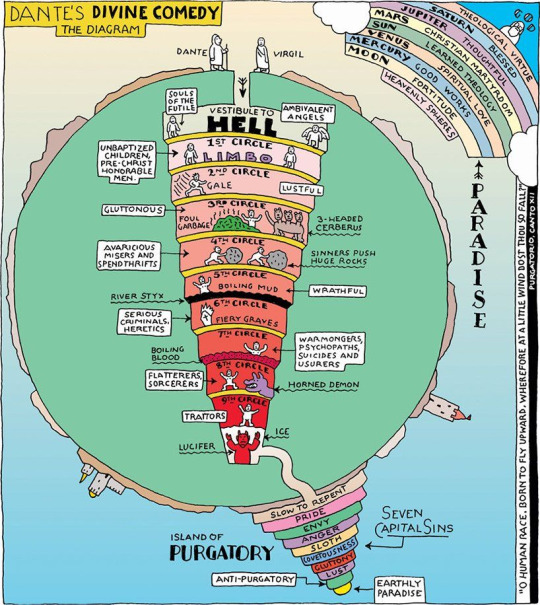
but yeah theres a little divine comedy lesson for yall
idk take it all with a grain of salt because i learned about dantes inferno like last year and really only remember the hell part of it all. also dante thought that gay people were worse than murderers in hell so thats another issue. aND the sandman universe takes into account all faiths and religions and gods and mythology theres not actually a true one god. and the divine comedy is very much a catholic read so yeah
#idk i think its interesting and i feel like most people dont know that much about Dante's but it kinda relates to dbd#definitely check out wendigoons yt videos on the divine comedy if you want a better cliff notes version#three videos one on each book. theyre kinda long (4.5hrs total) but interesting🤷♀️#dead boy detective agency#dead boy detectives#dbds#dbdshow#dbda#edwin payne#charles rowland#dantes inferno#george rexstrew#jayden revri#the divine comedy#the dead boy detectives#dead boy detectives theory#i did more research for this than literally any of my finals (not saying much. i did like 10 minutes of research)
43 notes
·
View notes
Text


Still don't know what to call this thing but uhmm thoughts on how Ingo could potentially accidentally found a pokemon. organization. whatever they're called
#hoof draws#how about uhm. divingo#for divine madness ingo#like. funnier if they were a massive pain in the ass even BEFORE ingo went missing#then when he gets home he starts researching the weird wolf guys who are obsessed with trains for no reason#and s like. ohh . ohhhhhhhh whoops this might be my fault
664 notes
·
View notes
Text
Shufflemancy 101: A Brief History & Analysis
Hey! If you like my work and want to support me in my quest for divination theory, digital tools, algorithmic quandries, and research into niche divination tools, consider throwing dollars at my Ko-Fi tip jar! Every contribution helps me keep making posts like this one. (You can also read this post over on Ko-Fi!)
The difficulty with researching something like shufflemancy is that it's a relatively modern phenomenon. I haven't yet found anyone (online or in a book) specifically talking about the origins of shufflemancy as a term or where it might've come from.
So, we start from square one.
What is Shufflemancy?
According to Wikipedia, shufflemancy is divination "by the use of an electronic media player such as an electronic playlist, iPod, or other medium wherein one skips a certain number of songs and the lyrics and/or tune of the song is the answer to the divinatory question."
Simple enough. Use an electronic collection of music that's been shuffled to divine.
This did lead me to the question: What counts as shufflemancy? Does tuning into a radio station count?
It's my opinion that radio divination does not count. There's no shuffle function. Yes, it has an element of chance, and that's what makes it divination. It certainly falls under the wider umbrella of divination via music, too. But it isn't shufflemancy if it doesn't make use of a shuffle function.
So, to make things simple, for something to be shufflemancy, it must:
Use an electronic medium
Involve a randomized shuffle function
Be something the shufflemancer can interpret to answer a question (pretty much anything)
Early Shufflemancy
The earliest form of shufflemancy as we understand it today, using the above requirements, would probably be tape players capable of shuffling music. With the nature of tape, it would take a while for the thing to wind and rewind to find the cue on the tape which signaled the start or end of a song, but it'd work.
With that said, shuffling as we understand and recognize it today would've started with CDs in the 1980s. There were CD players that could hold three to five disks at a time. They could shuffle songs between all disks held in the player, creating a random mix of tunes for listeners to enjoy.
Using either of these methods for divination would work, technically. The results would be somewhat limited, but that doesn't mean it's a bad method to use. Especially if your CD player could hold 5 disks, you could easily put in 5 albums from different artists with all different vibes for a wider variety of outputs.
I certainly remember using my little blue radio that held two CDs at once like this. I'd put in two albums and hit shuffle, and the first song that played would be my vibe and advice for the day. It was divination -- some of the earliest I'd ever done consciously, at the young age of nine. And when I got the bigger one that held three CDs? Game changer.
So this puts shufflemancy's origins somewhere around the mid-to-late 1980s, when Sony put out the first CD player with shuffle. As we moved into the 1990s, CDs became more popular and cassettes faced obsolescence.
The Shuffle Revolution & Early Modern Shufflemancy
In 2005, Apple changed the game again. It had already debuted the iPod in 2001, providing an easy, pocket-sized music experience as a direct challenge to the CD's cultural domination. On January 11, 2005, nearly 20 years ago, Apple announced the iPod Shuffle.
And oh, boy, did it change everything.
I could talk forever about the iPod's impact on the music industry, the death of the in-order album, and the eventual rise of music streaming services. But others have done that to death, so I'll focus in on our topic of shufflemancy.
This is where we start seeing shuffling music as it is now, in the modern day. In my digging, I found mentions of the term "shufflemancy" as early as 2007 -- just two years after the iPod Shuffle was announced. Someone proposed the concept and terminology of "shufflemancy" as we understand it today on a Halfbakery Forum "Idea" post on October 3, 2007.
It's difficult to say whether this is the first instance of the term. In reality, shufflemancy seems to have emerged as a natural by-product of the evolution of music technology. Where there is innovation, witches and diviners will mold it to their purposes. We're a resourceful bunch like that. It grew organically as we moved from buying albums to buying singles to streaming music without buying at all.
People were offering public shufflemancy readings as early as 2009 in places like TarotForum.net. It's spoken about during this era as a "silly" and "new" form of divination that people were trying out. There aren't any dates in that link, but according to the website's data, the first post in the thread was published on June 16, 2009.
From there, shufflemancy saw a gradual rise in popularity. It evolved from using iPods to iTunes, Napster, and eventually Spotify as these new applications emerged.
Shufflemancy Now
If you look up "shufflemancy" using Spotify's search function, you'll receive dozens of results. Many of the top playlists are public ones curated by shufflemancers for themselves and others to use. Options range from general playlists to "mega mixes" containing upwards of 200 hours of music from all different genres, artists, and eras. There are some with a paltry five hours of music, while one that I've seen goes up over the 600 hour mark. (If I can find that one again, I'll reblog it, because... damn.)
Select a "messages from your guides" option from the search or curate your own -- the choice is yours. For one-time shufflemancers, using a pre-made option may be the best, most economical choice. But dedicated shufflemancers sometimes boast multiple hundred-hour playlists for different purposes, all personally curated.
Clearly, it's popular. There are shufflemancers on Tumblr and Etsy offering free and paid services using their specially curated playlists. A quick search is all you need to find someone receiving a divinatory reading via song lyrics, meanings, and vibes. And it seems to work -- sellers on Etsy boast hundreds of positive reviews. Some even offer playlist curation services for personal shufflemancy or messages from deities and/or spirits.
It all begs the question, how does shufflemancy work?
Shufflemancy Methodology
Finding this is significantly easier than pinning down the history of shufflemancy. This post from Tumblr user orriculum, sums it up fairly well. So does this one by the-daily-diviner.
To do shufflemancy, the basic steps are:
Create or find a playlist of songs. A large collection seems to be the most favorable option for a wide spread of possibilities.
Ask a question. Divination 101 -- figure out what you want to know and ask it. Simple enough.
Pick a number. Choose any number and shuffle that many times or skip that many songs.
Listen to the song. Write down lyrics that stick out, messages that come through, and anything else that seems relevant (genre, tempo, vibe, etc.)
Interpret. Take the information gathered during the song and use it to draw conclusions, just like any other form of divination.
Simple enough. Shufflemancy is the sort of method that requires a high level of intuitive thinking. It's very mutable and suits a good amount of personalization.
This is both good and bad, I think. It would be incredibly easy to create a bias in your shufflemancy playlists by selecting songs with primarily one genre, artist, album, emotion, or through-line. The ideal playlist really does have a wide variety of music, and this means selecting songs that the shufflemancer doesn't necessarily like. We all have a genre or artist we hate; excluding an entire genre skews results. Impartial selections of music are critical to the success of good divination. Otherwise, we risk interfering with the outcome.
And speaking of interfering...
The Algorithm Problem
(Note: I'm focusing in on Spotify since it's very commonly used and because it's accessible to me. Shufflemancy can be (and is!) done with plenty of other apps like Apple Music.)
When Spotify was originally launched, it used a version of the Fisher-Yates Shuffle to perform its shuffling of music. In essence, this algorithm takes a finite sequence of data, picks an option from that selection of data, and removes it from the pool. Then, it picks another and another until no more options remain.
At first glance, this seems great! It creates a fairly random output. But as is the nature of randomness, there were clusters. The same artist would play four or five times in a row from a large playlist, and Spotify users complained. It was random, but it didn't feel that way.
The human brain is wired to find connections and patterns. When the same artist plays over and over again despite a playlist being on shuffle mode, it creates a pattern that the brain recognizes. Therefore, the "true" randomness of clustering outputs was unsatisfactory.
So, in 2014, Spotify updated it. Their new algorithm would detect and remember the song it just played and, in shuffling, account for the artist and album to provide a more random-feeling result. The new algorithm detects what's already played and selects accordingly to prevent the same artist from playing twice in a row, just as it prevents the same song from playing twice. It spreads artists out evenly (though not perfectly, to maintain the illusion of randomness) to provide an enhanced listening experience.
What does this mean for shufflemancy, then? If Spotify's algorithm is interfering in the output provided from a playlist, does that mean it's not a reliable form of divination?
At first, I wasn't so sure. I adjusted my thinking -- if a tarot app was preventing certain cards from being drawn (or from being drawn in a particular order) because I'd already drawn them that day or week, would that render the app unreliable? And the answer was yes. It would! It removes the random element from the method, therefore making it not true divination by my definition.
So shufflemancy with Spotify isn't (good) divination, then. Right?
My Opinion & Theory
In thinking about this further, I think it comes down to personal opinion. People certainly have success with shufflemancy via Spotify, or else they wouldn't do it. They definitely wouldn't offer their services (free or otherwise) if they weren't confident in the results it provides.
Thinking that way, I believe there's a way to off-set the algorithm's interference. With enough songs in a playlist, the random element is enhanced despite the algorithm. Not by having the same song multiple times (Spotify would surely detect this and prevent it from playing), but perhaps the same song covered by different artists. Songs with the same vibe, the same meaning, similar lyrics... AND songs from a wide variety of artists and genres, regardless of whether the shufflemancer likes the songs or not.
The person with that 600+ hour playlist for shufflemancy has it right, I think. That's the key. Variety and volume to make up for Spotify's algorithmic shuffler.
Additionally, in listening to my many, many Spotify playlists, I noticed something. If I'm listening to a playlist on shuffle and decide I want a specific song, I can choose to play it immediately. Afterwards, songs I've already heard might play. It seems as though doing this resets the shuffling algorithm in some way. Doing this in combination with a large and varied playlist might be the key to making shufflemancy in Spotify truly, fully reliable.
My Next Steps
Obviously, scholarly research only goes so far in situations like this. In order to properly gauge the accuracy of shufflemancy, I'll have to do it myself.
First, I'll need a playlist. I have a handful of playlists that sit in the hundred-hour range, but they're curated with friends for specific vibes. They're not really suitable for shufflemancy. So making one for myself is step one. I'll use premade playlists as a springboard for ideas, but the end result will be my own. For transparency, I'll make the playlist public and share it as part of the next edition in this series of posts.
The next step is to just... do it. Do the divinations, and do them regularly. Instead of a daily tarot card, I'll do a daily shuffle. I'll form "spreads" and put together a more in-depth methodology that fits my style as it develops.
Then, finally, maybe public ones? For reviews and feedback, obviously. It's one thing to do divination for myself -- confirmation bias and all -- but to do it for others and to be open for immediate feedback is entirely different.
Last, it's a matter of compiling my findings into a coherent document. Easier said than done, but done it must be.
Resources
I pulled from a lot of places for this one. Massive thanks to the Crossroads Discord for listening to me yell about divination for the last several weeks. It will continue.
In any case, here are all the resources I referenced for this leg of research:
Wikipedia - The Fisher-Yates Shuffle
Wikipedia - Methods of Divination
Wikipedia - The iPod Shuffle
PopSci - History of Shuffling Music
Engineering at Spotify - How to Shuffle?
The Verge - The Mixed-Up History of the Shuffle Button
Auntie PanPan (YouTube) - Shufflemancy - What IS It?!?
Halfbakery - Shufflemancy Idea Post
Fox and Faith Wordpress - Radio Divination and Intentional Living in Your Day to Day
Scientific American - How Randomness Rules Our World and Why We Cannot See It
PC World - The CD Player Turns 30
Make Use Of - How Spotify's Shuffle Feature Really Works
Orriculum on Tumblr - Post on shufflemancy technique
The-Daily-Divinre on Tumblr - Post on shufflemancy technique
Empirical Zeal - What Does Randomness Look Like?
#aese speaks#digital divination#divination#divination algorithms#shufflemancy#shufflemancy 101#witchcraft#research#history of magic#history of divination#history of shufflemancy#witchblr#witch#divination witch#witchcraft community#divination community#discussion#witchy discussion#divination resources#shufflemancy readings#divination 101#ok im done tagging. for fucks sakes this is a beast of a thing.#please reblog this & add your thoughts#i crave feedback
83 notes
·
View notes
Text
Raphael is a nepo-baby who successfully ran his own small business and thought that qualified him to run for president. Zero work experience and a dream. What a guy.
#bg3 raphael#bg3#bg3 spoilers#rat husband#/said affectionately#Doing research for a fic#"You need a portfolio to ascend to divinity'#Raphael: no skills no experience just hope#This is all in fun lol#I knows he's smart#But he also dumb
72 notes
·
View notes
Text
Grimoire/Bos Prompts or Research Topics for the Witch that Doesn’t Know What To Do Next
(Pt. 2/4)
Another list with ideas, as always, these ideas and prompts by no means belong to me, and if you’d like, check out my first post for more prompt-type ideas (hopefully I’ll remember to link the first one before I post this.)
- What does each season mean to you and what are witchy activities, spells, and rituals you can do during these seasons? This one is pretty self-explanatory. A cool idea I had for it is dedicating a page to each season and including something from each season in it (like a pressed leaf for fall, pressed flower for spring, etc.) You can also include how plants or the weather usually looks during each season (An idea courtesy of Molly Roberts on YT).
- If you like fantasy novels-- how their magic differs from real magic, things you wish fantasy authors would incorporate or do, and any phrases that speak to you on a magical level. You could also write a sort of self-analysis about why you like the genre and any possible magical ties. (Ex. maybe you like fantasy novels because you realized it’s the only way you really see magic in media, or maybe it’s indulging the inner child in you that still wants to shoot fire out of your hands).
- Music, Art pieces, or general Artists that give you magical vibes. You can also put the lyrics, the art, or something pertaining to the artist in a page/use it to decorate empty space. This also can tie into pop magic.
- If you play an instrument and have something like a string that can’t be used anymore, write about it and find ways you can magically incorporate it, and if you want, you can find a way to decorate the page with said object. This can be extra fun if you use the instrument for magical workings, and it can also apply to things like old art supplies.
- Your heritage and how you can use it in your craft. This can range from a list of types of magical concepts that relate to your heritage, to whole practices and paths that were made that your far back ancestors would have used. You can list these types of magic and: 1) list the history of them 2) talk about how it’s connected to you [is it personal? Is it something you want to make personal?] 3) Are there factors about it that should be considered? [is it a part of a practice, did another group influence/use it?]. This can be useful because it gives you a way to connect further with your practice and to take a fun adventure where you can learn more about yourself. Always be aware of other cultural factors and don’t appropriate.
- How you prefer leaving offerings. Most likely, you’ve at some point learned how to leave offerings (whether it’s working with deities, or with nature in general), and you’ve found a way to leave offerings that work for you. Maybe you prefer praying/speaking before or after leaving an offering, maybe you just leave an offering with a brief couple of words, or maybe you prefer leaving art you’ve made from paintings to poems. Further, maybe you prefer having an outside altar versus an inside one and vice versa, or any of those things might vary depending on what you’re communicating with. Write about it, and why you do it for future use.
#grimoire inspiration#grimoire prompt#witchcraft#witch#witchblr#divination#book of shadows#bos inspiration#bos ideas#bos prompts#grimoire#witches of tumblr#magic research#magic#witchy#grimoire prompts#witch research
23 notes
·
View notes
Photo
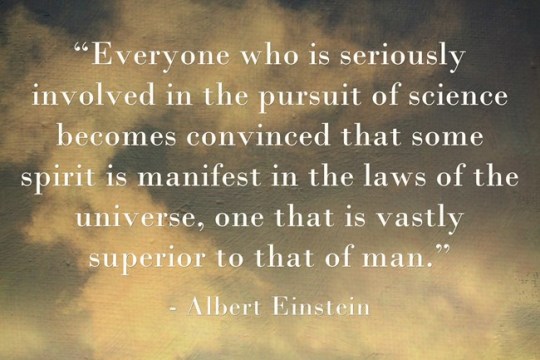
source
#albert einstein#einstein#science#spirituality#truthseeking#research#exploration#evidence#patterns#intelligent design#energy#divine source#birth and creation#evolution#manifestation#cosmic laws#guidance#all soul#love
587 notes
·
View notes
Text
I like big books and I cannot lie 🎶




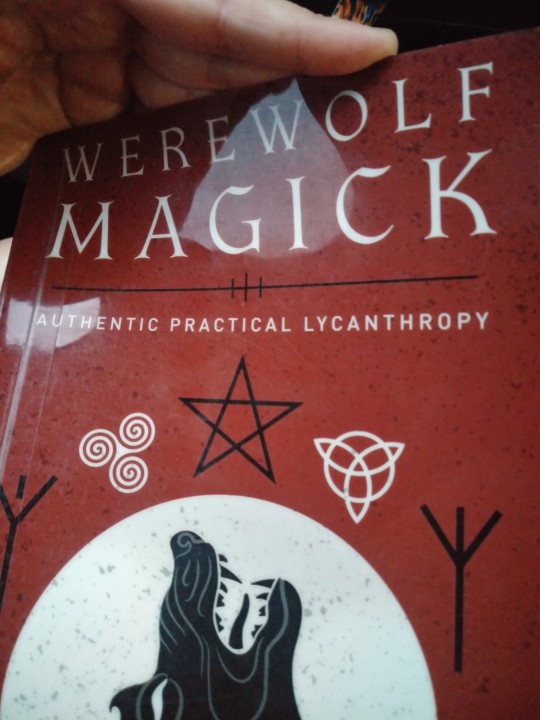
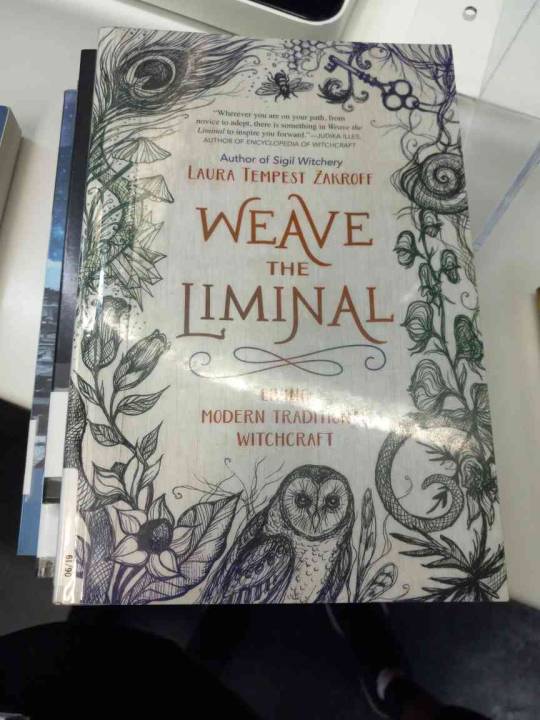

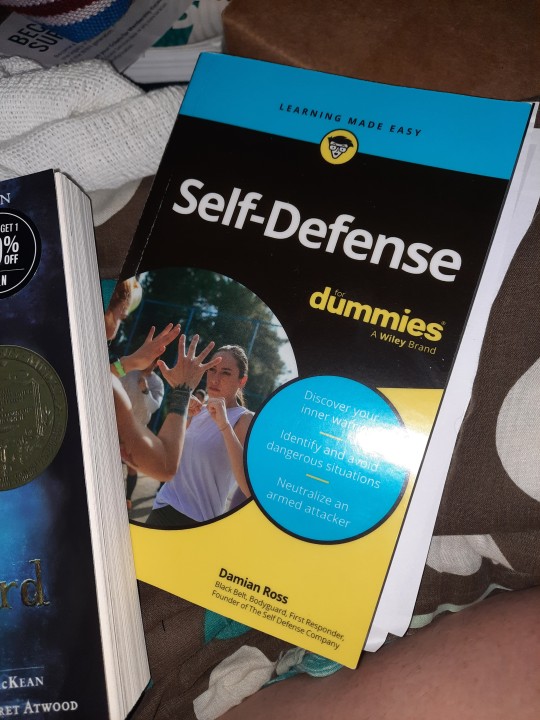
some books I gave recently grabbed from the library.
I liked and wanna buy Do I Have To Wear Black? Lots of good info in there on funerary customs. I wasn't sure I was gonna like it because of the Wicca mentions at first but I was actually pleasantly surprised as I got into it. I sort of blew through it tbh because I'm not super interested in like the Kemetic or Wiccan customs, just the Norse/ heathen and Hellenic, but the very general parts at the beginning were really informative. Mortellus is a mortician and 100% definitely knows what in the heck they're talking about.
I skimmed through the Thrifty Witch book and Tarot Interactions before bringing them back because those I just need to have/ buy. I need to buy those. Thrifty Witch would definitely be more useful to me as a resource than something to read if that makes sense.
and similarly with Tarot Interactions, that is an absolutely fantastic excellent book from what I read of it, and I definitely absolutely need to have that as a resource. I also feel like that's something I wanna take my time with, not rush.
Werewolf Magick was meh. I soared through it. I was rolling my eyes at far too much of it to take any of it seriously, and by the time I got to what I was interested in/ what might have helped, couldn't understand it because of all the weird lingo/ jargon that he'd set up at the beginning. Admittedly that's my own fault obviously for trying to skip to the end, but the first part just made me cringe too much. There's too much mixing of different practices in a way that imo honors none of them, and then mixing it with crap like Wicca to boot. I just... no, I'm good, no thank you. I had gotten it out of curiosity, expecting it to not be much and... yeah, it was what I expected.
Witch Queens, Voodoo Spirits, & Hoodoo has been fantastic so far and I have got to finish it. I started it and got distracted and it went back on the shelf and I've gotta get back into it. It starts with Annie Christmas who is none of the things mentioned on the cover, lol, but I love the way it talks about our local myths and legends. Absolutely A+ 100% yes.
Weave the Liminal is... surprisingly better than I expected so far? I'm not quite sure what to make of it. We'll see as we go.
I've had the ones in that first three pictures checked out for a while and I really need to get to them. I was hoping the Shamanism Bible would give me some words to look up, a good place to start research into that but it feels like too much of a chore. The charm bag and ancestor books I just keep forgetting I have, and I expected the New Orleans one to be a quick read but again keep forgetting it's there.
Did I grab too many books? Yes, every damn time. I have maxed out how many I can borrow from the library. Oooops. xD
I absolutely had to grab The Holy Wild Grimoire though when I saw it on the shelf because that has been on my wishlist for a while and I love checking out books before buying them. I feel much better about purchasing when I already know I like them.
#books & libraries#library#books and reading#pagan witch#witchcraft#witchblr#adhd witch#divination witch#eclectic witch#goddess of witchcraft#neurodivergent witch#oracle witch#hekate#morrigan#voodoo#voodou#new orleans#hoodoo#shamanism#shamanistic#books are magic ✨#amulets & talismans#charm bags#ancestors#ancestor magic#history#research#funerary rights & practices#death dying funerals#paganism
17 notes
·
View notes
Text

God's Covenant with Abram
5 And He brought him outside and said, “Look now toward the heavens, and count the stars if you are able to count them.” And He said to him, “So are your seed.”
6 And he believed in יהוה, and He reckoned it to him for righteousness.
— Genesis 15:5-6 | The Scriptures (ISR 1998)
The Scriptures 1998 Copyright © 1998 Institute for Scripture Research. All Rights reserved.
Cross References: Genesis 17:2; Genesis 22:17; Genesis 26:4; Exodus 32:13; Deuteronomy 1:10; Nehemiah 9:8; Romans 4:3; Romans 4:9; Romans 4:18; Romans 4:20; Romans 4:22; Galatians 3:6; Hebrews 11:12; James 2:23
#God#Abraham#divine promise#stars#heaven#innumerable#descendants#belief#righteousness#Genesis 15:5-6#Book of Genesis#Old Testament#ISR 1998#The Scriptures 1998#Institute for Scripture Research
13 notes
·
View notes
Text
Time to post this again 👇
The bible is not to be taken literally⁉️
Pay Attention 🤔
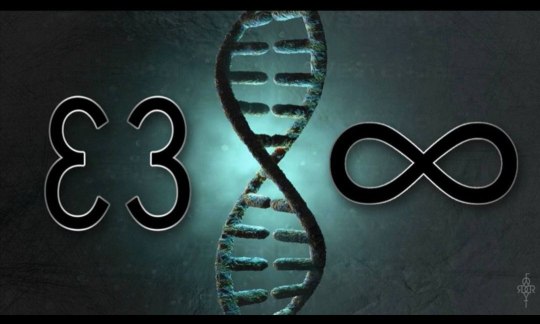
You are made in the image of God 🙏
So educate yourself about the connection🤔
#pay attention#educate yourself#educate yourselves#wake the fuck up#wake up#wake up america#wake up people#wake up world#do your own research#do your research#do some research#do your homework#did you know#spiritual knowledge#knowledge is power#relearning#learn#connecting dots#everything is connected#you're divine#you are the universe
198 notes
·
View notes
Note
I feel like the wildest thing is like. Again, the creation of Nahida way earlier in the timeline. A proof of concept, as you would. A tiny god child and Ajax is just well. She might stay tiny for centuries or she might grow better outside of being imprisoned- and isn’t that a wild thing to just drop on someone. This tiny god of dreams
it would be absolutely buckwild but also conisder: dream divination becomes a thing
#catch deshret becoming terribly interested in dreams n shit#yknow since was behind the golden slumber which is a collective dream#and so the rainforest goes on to be the land of like knowledge and arts and sciences and all things material and tangible you can study#and the desert becomes the land of like. divinations#maybe the rtawahists unite both sides in terms of interests#or maybe it becomes the only feud between them. astrology vs astronomy#and ajax is like yknow what? sure. i like this funny haha scholarship research feud better than the racism n segregation#rukkha deshret n nabu: the what
14 notes
·
View notes
Text
I’m so invested in wizard101 and its denizens that it has got me researching actual irl science and engineering so i could depict magic better
#most of the text is under the tags yet again lmao whoops#I’m out here looking up electrocultural agriculture bc i wanna draw my YW revisiting Khrysalis after Morganthes defeat#helping reverse the mass deforestation and crystallisation caused by the umbra legion#mainly bc I don’t like how fast the game moved on from us saving Khrysalis to merle immediately telling us we r graduating#let there be at least some period of time in between jdjfkg#montage of my wizzy taking the time to learn theurgy under moolinda#despite being a storm wizard#and researching how to heal the land and plant new growth#to use her storm magic to stimulate the plants to grow faster and stronger#bc smth smth electrical currents promote plant development and helps them grow more fruit#and teach whatever shes learned to any other spellbinders and farmers in Khrysalis. bc what good is knowledge if it is not shared#maybe rope professor balestorm into this too with all the experiments. wait who am i kidding he would love that and immediately#(or hop. ha) to help experiment. rope the other diviners into this whole project too actually. get those participation credits kids#w101#wizard101
19 notes
·
View notes
Text
General question for other polytheists - I'm a Hellenic Polytheist but I'm open to advice from anyone if you've got wisdom to share - how do you build a relationship with a deity? I have a very close personal relationship with Hermes, but he really took the lead on that and sought me out. I want to start to connect more with others in the Pantheon, I'm just kind of intimidated, they all seem so... you know, regal and important and far away. I've gotten into the habit of giving offerings and researching them and just keeping them in my thoughts, it just feels really one-sided and like I don't really know them, you know? So... How do I get to know a God? How did you all get to know your deities?
#i have a hunch the answer is research and divination#but i wanna ask for other people's personal perspectives too! I'm curious#i figure itd be best to focus more on certain specific gods too. at least to start#i'm just not even entirely sure who because i want to connect with so many!#ghost speaks#polytheism#hellenic polytheism#deities#gods
8 notes
·
View notes
Text
Digital Divination: The Survey!
It's time! As I compile information about apps and various divination methods from across the Internet, I've decided to publish a survey via Google Forms to get more direct answers from diviners and from people who hire diviners (paid or free).
If you'd like to participate in the survey, click here! I'll be leaving it open for responses for a few weeks, possibly through the end of the year.
Please feel free to share the survey in your witchy Discords, on Facebook, on Twitter, on your own blogs, wherever! The more exposure it gets, the more responses I'll receive, and the better my research will be for it. Even if you don't repost it elsewhere, and even if you don't take the survey, please reblog (don't just like!!) to help spread it around!
A public breakdown of results will be posted once the survey closes, but Ko-Fi supporters can expect early glimpses of results, raw data, and preliminary conclusions (so long as I get enough entries!).
#aese speaks#divination#digital divination#tarot#tarotblr#witch#witchblr#witchcraft#witch community#divination community#tarot community#lenormand#bone throwing#divination algorithms#ai divination#I AM. EXCITE.#reblogs > likes#reblogs help the research
35 notes
·
View notes
Text
In the name of following up every lead and reference, I bought myself an affordable copy of Kees, H., “Der Götterglaube im Alten Ägypten.” There are actually quite a few mentions of Wepwawet, so I’m pleased. In my quick photographing of relevant pages, I also caught part of a section where Kees discusses arrows and some of their symbolism/significance, which I want to review carefully to see what insight might be revealed about the unusual arrow motif on Wepwawet’s standard that I have been tracking for years. Something else of interest: Kees not only points out the use of black for the jackal divinities as something they have in common but suggests a why as well, beyond an association with the dead: It’s rarity. It makes sense that rare colouration could be seen as an indicator of sacredness. 👏👏👏
#kemetic#iconography#research#jackal divinities#jackal gods#wepwawet#as above so below#wepwawet is not grey
10 notes
·
View notes
Text
Started replaying Overture since my controller's working with it now and I forgot how evil this game makes me. Sorry Sin. I'm always forgetting about you and now I'm lighting you on fire and telling you to shut up...
#textpost#I first played this game while I was still working on the Begin and Artworks 2007 translations#So before I even owned the Overture Material Collection book#And it's really really funny how Sol's exposition makes crystal clear sense this time around#Oh yeah. Of course this chant is outside the 12 established Divine Steps because it's from the Backyard#Everyone knows that. Duh. *wild throws Sin*#I LOVE SIN DON'T GET ME WRONG. IT'S BECAUSE THEY MADE HIM THE TUTORIAL CHARACTER AND I HATE TUTORIALS#Paradigm though. Paradigm... I'm gonna wring his little chicken neck like a dish towel for making me research quantum mechanics
16 notes
·
View notes
Text
So I wanted to do some research on the recent popularity of eldritch angels in pop culture and the queer community because it interests me and I was wondering if anyone would like to help me!
It’s mostly for fun but also I find it fascinating and would love to write out an analysis on it at some point!
Please reach out so I can give you my discord!
#angelology#theology#pop culture#kabbalah#pride#queer#lgbtq#analysis#research#video essay#angels#eldritch#eldritch horror#horror#divinity
28 notes
·
View notes